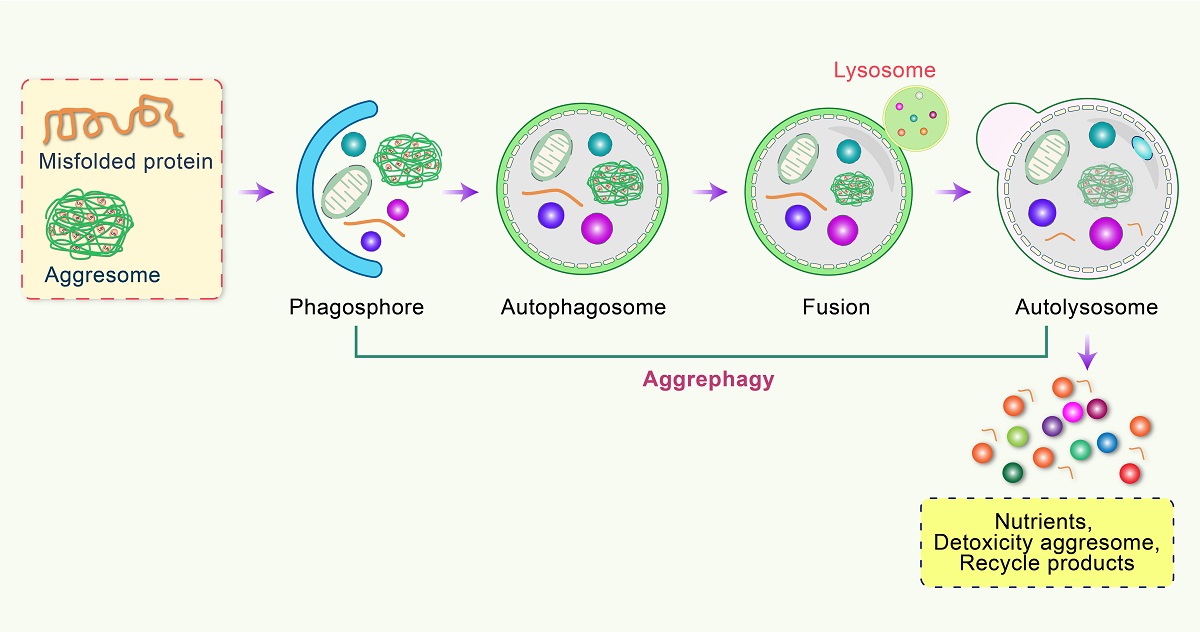Alzheimer’s disease (AD) is one of the most prevailing neurodegenerative diseases in the world, which is characterized by memory dysfunction and the formation of tau and amyloid β (Aβ) aggregate in multiple brain regions, including the hippocampus and cortex. The formation of senile plaques involving tau hyperphosphorylation, fibrillar Aβ, and neurofibrillary tangles (NFTs) are used as pathological markers of AD, and eventually produces aggregation or misfolded protein. Importantly, it has been found that failure to degrade these aggregate-prone proteins leads to pathological consequences, such as synaptic impairment, cytotoxicity, neuronal atrophy, and memory deficits associated with AD. Recently, increasing evidences have been suggested that autophagy pathway plays a role as a central cellular protection system to prevent the toxicity induced by aggregate or misfolded proteins. Moreover, it has also been related that AD-related protein aggresomes could be selectively degraded by autophagosome and lysosomal fusion through autophagy pathway which is known as aggrephagy. Therefore, the regulation of autophagy might be served as a useful approach to modulate the formation of aggresome associated in AD. This review focuses on the recent improvements in the application of natural compounds and small molecules as a potential therapeutic approach for AD prevention and treatment via aggrephagy.

